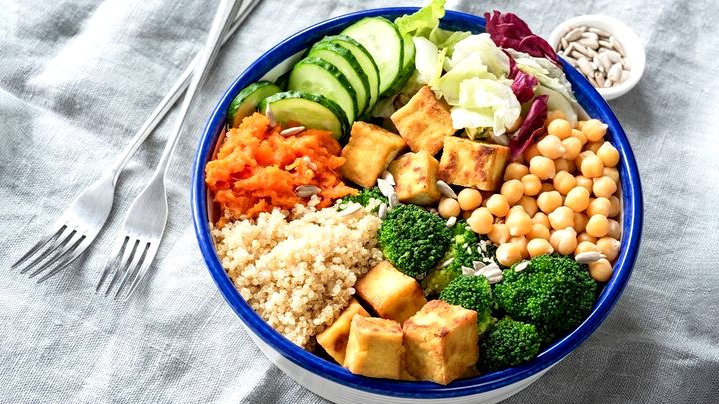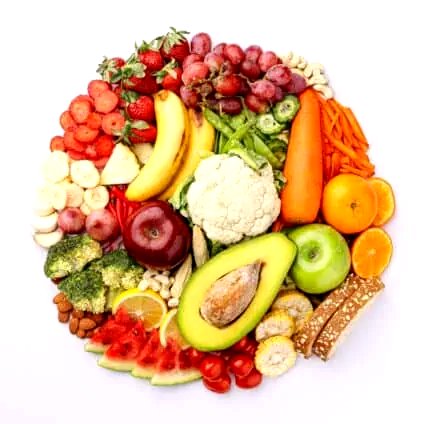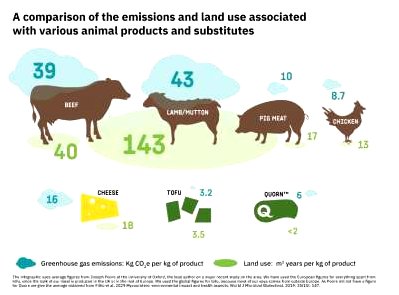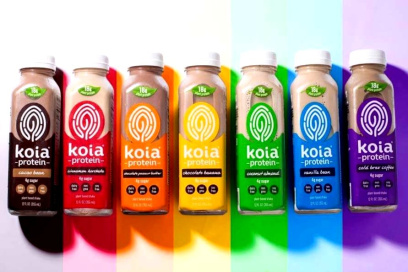Have you ever considered whether animal meat is essential to human survival? Long ago, this confusion has confounded an overwhelming majority of individuals who are deeply convinced that meat forms an indispensable component of their nutritional requirements. Recent research findings have demonstrated that an intelligent vegan or plant-based diet can deliver all the essential nutrients for leading a healthy, sustainable lifestyle, despite contrary public perception. In this article, we shall explore the many advantages associated with living a plant-based diet and disprove some common myths regarding vegan nutrition. From philosophical and ecological considerations to transitioning to a vegan lifestyle, we will present all aspects of knowledge. Let us investigate our perceptions and discern if humans really require meat for survival?
I. The Protein Myth: Plant-Based Alternatives to Meat
Well, let me dispel that common protein myth once and for all - that vegan or plant-based diets cannot possibly provide sufficient protein for active people's bodies. Get ready for some serious knowledge on this matter as I am going to deliver some very valuable insight here!
Dispel this misconception once and for all: studies by health experts and nutritionists have repeatedly demonstrated that veganism can easily meet daily protein requirements without ever touching meat products - there are plenty of plant-based sources that will keep your body running optimally!
Are You Wondering, "But How Am I Going To Find This Protein?"
Don't fret - I Have Your Back. Lentils, beans, chickpeas, quinoa, tofu, tempeh and nuts are some of the many protein powerhouses available to us; lentils boast 18 grams per cup while chickpeas offer approximately 15 grams. Finally, two soybean-based superstars: tofu and tempeh provide approximately 10 grams per 100-gram serving!
As with anything, variety is key when it comes to meeting essential amino acid needs; your body deserves variety! So mix things up! Add quinoa or nuts as salad toppings or stir fry your tofu into a tofu stir fry - your taste buds and muscles will thank you.
But that's not all! If you find that you don't get enough protein in your diet, supplements may be an option to help supplement the amount you're getting based on factors like body weight and activity level. Pea protein powder or soy protein - vegan-friendly powders available out there await you if necessary. Online calculators can also assist in helping determine how much protein intake would best serve you based on individual bodyweight/activity level considerations.
Just keep in mind that protein should not be seen as the sole solution to nutrition. Too much of anything can be harmful, so try not to overdo it - most people only require around 0.8 grams per kilogram of bodyweight per day of protein intake. In all instances, always consult a medical provider prior to making drastic dietary changes.
Conclusion:
The protein myth has come and gone. With such an array of delicious and nutrituous plant-based protein sources available to us today, there's no excuse not to pursue a vegan or plant-based lifestyle! So go forth and get your protein on!
II. Vegan Nutrition: Getting All the Nutrients You Need
Concerns surrounding veganism or plant-based lifestyles often center around whether they can meet all their nutrient requirements that typically come from animal sources. While meat provides many essential nutrients, plant foods also have plenty of options that can meet this nutritional gap.
Iron
Iron, an essential mineral often associated with red meat, can also be obtained through various plant-based foods like beans, lentils, and dark leafy greens such as spinach and kale - not to mention fortified cereals! It's surprising how widely available iron is today compared to its popular associations.
Vitamin B12
Vitamin B12 is an essential nutrient, essential in avoiding deficiencies. Although animal products provide the source of this nutrient, you can also gain it through supplementation or fortifying plant-based milks and nutritional yeast with fortified plant-based sources containing this vitamin! Hence, there are plenty of vegan sources to opt for!
Calcium
But wait a second! Calcium - often associated with dairy products - can actually be obtained from many plant-based foods as well. You could add delicious options like kale, collard greens, broccoli, figs, and fortified plant-based milks to your diet without compromising either taste or health.
Essential Nutrients
Not only that! A properly planned vegan diet can also provide essential omega-3 fatty acids, vitamin D, and zinc which can be found in nuts, seeds, legumes, and dark leafy greens. So why wait - take the leap now into living an entirely plant-based lifestyle that boasts numerous nutritional advantages!
Be mindful of your food intake with assistance from a registered dietitian specializing in vegan nutrition can help ensure optimal health and prevent nutritional deficiencies. So go forth and explore! Plant-based foods offer plenty of nutrition - you don't have to succumb to myths that vegan diets don't supply essential elements. Enjoy what nature has provided!
Learn about vegan nutrition at Vegansociety.com.III. The Ethical and Environmental Impact of Meat Consumption
Implications of Meat Consumption
As more research on veganism and plant-based living gains widespread acceptance, its ethical and environmental implications of meat consumption must become clear. While carnivory may provide certain health advantages, its environmental footprint must also be taken into account; particularly that caused by meat industry greenhouse gas emissions, deforestation, overusing water resources and ethical violations associated with treatment and care of livestock raised for consumption.
Ecological Impact of Meat
Society must acknowledge its responsibility in meat-related ecological degradation. Meat production consumes substantial resources such as land, water and fossil fuels. Consumers' consumption of meat contributes directly to deforestation, water depletion and pollution that causes harm to air, water and soil quality - an estimated 18% of global greenhouse gas emissions are produced by this sector according to FAO/UN figures.
Ethics of Animal Products
Ethics surrounding animal products must also be thoroughly explored. Animals raised for meat-industrial complex are subject to harsh and often cruel treatment that defies common sense standards of fair treatment; such practices include debeaking, tail docking and cramped living quarters without adequate pain relief - practices even by lax ethical standards are highly ethically questionable.
Benefits of Plant-Based Living
By adopting veganism or plant-based lifestyle choices, individuals can ensure they remain true to their personal values and judgments while contributing to more compassionate living. Furthermore, plant-based eating has proven extremely successful at reducing ecological footprint and thus mitigating climate change concerns.
Necessity of Decreasing Meat Consumption
Conclusion: Adopting more plant-based foods into our diets while decreasing meat consumption is a necessary necessity. Consumption of animal products causes significant environmental degradation while neglecting ethical considerations or sensate organisms' welfare should never be ignored. Integrating plant-based principles into one's life choices will create a healthier, more compassionate world.
IV. Transitioning to a Plant-Based Lifestyle
Switching to a vegan or plant-based lifestyle can seem like an insurmountable task; however, the journey can be rewarding and fulfilling. Here are some helpful tips that can help make this transition to plant-based eating a successful journey:
Start Slowly
Starting slowly can help make changing to a plant-based diet manageable and less daunting, such as gradually eliminating meat-based meals from your diet altogether. You might try gradually switching over to meatless meals without getting overwhelmed or becoming discouraged by sudden, drastic change. Furthermore, eliminating one type of meat at a time like beef pork or chicken might be more appealing options to consider.
Find Support
Second, having support from family and friends makes the transition less strenuous. Joining a vegan community provides even more support and can make things even simpler.
Educate Yourself
Education is also key in maintaining a healthy and enjoyable plant-based lifestyle. While transitioning may seem intimidating at first, books, blogs, and videos exist that can help explain plant-based nutrition and tasty plant-based recipes better.
Experiment with Recipes
Experimenting with new plant-based recipes and ingredients can make this journey exciting and fulfilling. Where once we were used to one form of diet, now our menus offer more diversity - opening doors to spices and flavors that could add flair and spice up meals!
Celebrate Victories
At all times, remember that this journey may involve setbacks; thus it's essential to take it one step at a time. No harm comes from taking steps backwards or encountering setbacks; what's important is celebrating all the victories each day.
Long-Term Health Advantages
Transitioning to a plant-based lifestyle brings numerous long-term health advantages. Studies have demonstrated the positive correlations between vegan and vegetarian diets and lower risks of heart diseases, diabetes and cancers; and lower blood pressure, cholesterol and body mass index levels.
Transitioning to a plant-based diet or lifestyle may seem intimidating at first, but it's certainly worthwhile taking the plunge. By starting slowly and finding support along your journey - as well as making learning fun! - making a sustainable, compassionate and healthy transition is definitely possible.
Read more on Forbes about transitioning to a plant-based lifestyle.Is a Plant-Based Diet Sufficient for Optimal Health?
At present, the age-old debate on whether humans truly require meat consumption to survive remains highly contentious and divisive. Yet evidence increasingly supports a plant-based lifestyle as being sufficient to provide every essential nutrient necessary for optimal bodily functioning. With abundant plant-based sources for proteins like iron or selenium available today, animal sources no longer necessary; additionally a structured vegan or plant-based diet can meet all dietary requirements to support sustained bodily wellbeing.
Apart from health benefits, plant-based diets offer ethical and ecological advantages that make them especially appealing. By cutting or forgoing meat consumption altogether, we can easily lower our ecological footprint, protecting the planet's resources. Furthermore, transitioning to veganism aligns our fundamental values with diet choices, creating an all-around more compassionate world.
Transitioning to a vegan or plant-based lifestyle may appear daunting at first, but with the appropriate support and resources the transition can become seamless and enjoyable. Benefits associated with living this lifestyle range from improved health, more compassionate lifestyle choices, reduced environmental impact and reduction of carbon emissions - it all adds up.
So when asked whether humans can achieve optimal health without eating meat, give it no second thought; the answer is unquestionable "yes". A plant-based diet not only meets, but exceeds survival needs while benefitting both you and the planet as a whole.




